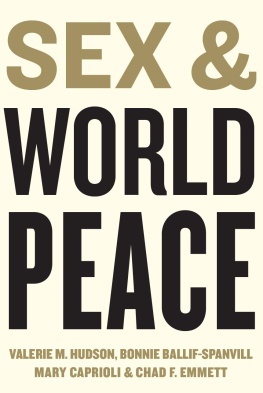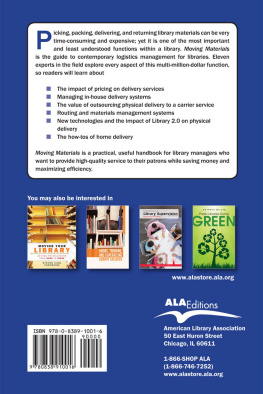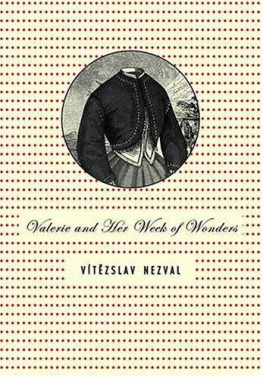
Praise for this book
This book is a welcome addition to the growing empirical literature on the real impact of Fairtrade on rural producers, traders and farm workers in different agro-food sectors. Valerie Nelson did a remarkable job in bringing together perspectives on social justice, gender empowerment, environment and civic organization that enable a balanced appraisal of the ongoing efforts towards the renewal of Fairtrade.
Professor Ruerd Ruben, Coordinator Food Security, Value Chains & Impact Analysis Agricultural Economics Institute (LEI) Wageningen University and Research Centre
This book avoids the elusive quest for attribution of impact to a non-existent generic fair trade. It argues instead for a balance between rigour and usefulness in impact studies, showing the way forward with resourceful and instructive country case-studies about context-specific impact processes.
Dr. Johan Bastiaensen, professor in development studies, Institute of Development Policy and Management (IOB), University of Antwerp, Belgium

Practical Action Publishing Ltd
The Schumacher Centre,
Bourton on Dunsmore, Rugby,
Warwickshire, CV23 9QZ, UK
www.practicalactionpublishing.org
Practical Action Publishing, 2017
The moral right of the editors to be identified as editors of the work and the contributors to be identified as contributors of this work have been asserted under sections 77 and 78 of the Copyright Designs and Patents Act 1988.
All rights reserved. No part of this publication may be reprinted or reproduced or utilized in any form or by any electronic, mechanical, or other means, now known or hereafter invented, including photocopying and recording, or in any information storage or retrieval system, without the written permission of the publishers.
Product or corporate names may be trademarks or registered trademarks, and are used only for identification and explanation without intent to infringe.
A catalogue record for this book is available from the British Library.
A catalogue record for this book has been requested from the Library of Congress.
ISBN 978-1-85339-906-0 Hardback
ISBN 978-1-85339-907-7 Paperback
ISBN 978-1-78044-906-7 Library PDF
ISBN 978-1-78044-907-4 eBook
Citation: Nelson, V. (ed.) (2017) Fairtrade Impacts: Lessons from around the world Rugby, UK: Practical Action Publishing
Since 1974, Practical Action Publishing has published and disseminated books and information in support of international development work throughout the world. Practical Action Publishing is a trading name of Practical Action Publishing Ltd (Company Reg. No. 1159018), the wholly owned publishing company of Practical Action. Practical Action Publishing trades only in support of its parent charity objectives and any profits are covenanted back to Practical Action (Charity Reg. No. 247257, Group VAT Registration No. 880 9924 76).
The views and opinions in this publication are those of the author and do not represent those of Practical Action Publishing Ltd or its parent charity Practical Action. Reasonable efforts have been made to publish reliable data and information, but the authors and publisher cannot assume responsibility for the validity of all materials or for the consequences of their use.
Cover photo: Tea picker, Kenya. Credit: Shared Interest. License Creative Commons, CC-BY-2.0
Printed in the United Kingdom
Contents
Valerie Nelson
Valerie Nelson and Adrienne Martin
Cheryl Mcewan, Alex Hughes, David Bek and Zaitun Rosenberg
Jason Donovan and Nigel Poole
Muhaimina Said-Allsopp and Anne Tallontire
Alastair M. Smith
Valerie Nelson and David Phillips
Adam Brett
Matthew Anderson, Philip Booth and Sushil Mohan
Valerie Nelson
About the editor
Valerie Nelson is Principal Scientist, Social Development Specialist and Reader in International Development at the Natural Resources Institute (NRI), University of Greenwich, UK. She leads the Equitable Trade and Responsible Business Programme at the NRI.
Valerie Nelson
Abstract
This chapter introduces the concept of the Fairtrade movement as well as an introduction to the chapters that follow. It asks whether or not Fairtrade can revise its methods, addressing issues such as share of value and assurance to buyers. Each chapter ultimately concludes that it is important for Fairtrade to adapt to a more flexible approach and understand its limitations better; otherwise it is at risk of falling behind and giving way to new strategies of international companies.
Keywords: Fairtrade, expansion, cultural economy, conventional trade, decentralization, strategy revision
The fair trade movement combines the efforts of many different organizations with a shared aim of achieving more equitable trading partnerships between disadvantaged producers and mostly Western consumers. This book focuses on one strand of this movement commonly known as Fairtrade the product certification system operated by Fairtrade International. Fairtrade has expanded rapidly in recent years, particularly in certain products such as tea and cocoa, but there is still a way to go before sector coverage is achieved in many commodities. Recent developments, such as the decision by one major chocolate manufacturer to promote their own brand rather than Fairtrade, albeit continuing an informal collaboration with them, means that the position of Fairtrade is also not secured in international markets. Fairtrade is a pioneer amongst the voluntary sustainability standards with a consumer label and particularly high visibility in certain markets. Unsurprisingly it has attracted more attention than other market-based mechanisms, including other voluntary sustainability standards to date, although this is now beginning to change.
This collection of chapters emerges at a critical juncture for Fairtrade. Its market expansion has been accompanied by increased attention to its effectiveness and there is increased questioning of its impact and relevance in many quarters. The case studies and overview chapter on impact assessment draw on detailed empirical studies of Fairtrade around the world and practical experience of conducting impact studies. The case studies highlight the context specificity of Fairtrade outcomes and impacts, suggesting that broad generalizations about Fairtrade effectiveness are unwise. What is needed is in-depth understanding of the complex interplay of multi-scale factors which shape livelihoods and environmental change at the local level, and of the role that Fairtrade plays in this dynamic over a period of time.
The chapter authors cast a critical eye over the key factors and processes in each place which influence the implementation and uptake of Fairtrade by producer organizations and companies and the eventual outcomes. The overview raises questions about how best to understand the outcomes and impacts of Fairtrade in a way which minimizes bias and supports rigour, but which also pays attention to usefulness and learning. Taken collectively, these chapters ask pertinent questions about the efficacy of Fairtrade and also provide practical suggestions given as to how improvements might be achieved.













